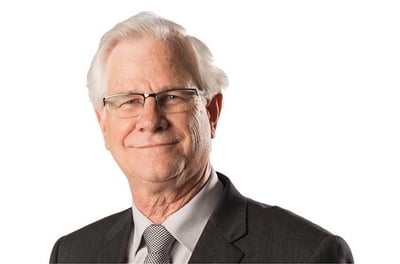Mind of Jacka: Looking Forward
Blogs Mike Jacka, CIA, CPA, CPCU, CLU Jan 26, 2023

“Tomorrow is a heck of a thing to keep up with.” - Walt Disney
Wow! Been quite a month, hasn’t it? As usual, it’s a great time to look back and…
Wait. What? You have questions? You want to know why, in January, I am already talking about looking back?
To which I respond with two questions of my own. First, why do we save such soul-searching for the end of the year? Second, why do we spend so much time soul-searching in the first place? Let’s focus on that second question.
The end of this past year was like most others. There were a lot of articles, blogs, and assorted written ephemera that waxed quite poetic about the past year. Top 10s, the year that was, fondest memories, worst recollections, where things went right, where things went sideways, highlights, lowlights, summaries, surveys, recaps, rehashes, and roundups, all in the spirit of achieving something that, unfortunately, we internal auditors do too well — looking backward.
Don’t get me wrong. It is important to look back and recognize accomplishments. And understanding the past is an important factor in getting an inkling of what the future might hold. Some year-end articles succeeded on both counts. (As one example, see President and CEO of the IIA Anthony Pugliese’s end-of-the-year blog).
But why do we spend so much time looking backward? Particularly after the last few years when things have been a bit… let’s just say weird, I’d like to think we’ve been paying sufficient attention to the past. Nostalgic reminiscences are wonderful (someday we’ll look back on all this and laugh), but an overabundance of such reflection is not the best use of our time.
Rather than looking backward, let’s look forward.
Now, looking forward is a tricky thing. Monday morning quarterbacking is always easier than guessing the plays for the coming game. But that didn’t stop a similar plethora of risk-based, woe-is-me predictions to flood the internet.
A good portion of what everyone seemed to write about seemed relatively obvious. And, if I were going to jump on that bandwagon, I could also harp on the things we’re already being warned about. I could scream that the bots are coming and you better adapt or die. I could remind everyone that we cannot turn our backs on the risks of social media. I could quote multiple studies that say cybersecurity has been and will continue to be the next big thing. And I could rant about the risks of inflation, labor shortages, climate change, geopolitical events, and ESG, to name a few.
But I’m not going to do that. No, there is nothing wrong with any of those risks. But let me tell you a quick story.
Almost exactly three years ago, I started a series of posts about the risks to which internal audit should pay attention in the coming year — organizational risks and risks within the department itself. Do some quick calculations about that timeframe and you will note that it was started and then interrupted by a little thing we like to call COVID.
Funny thing. In that extended series of posts, there was not a single mention of or guess that a pandemic would be an issue in the coming year. Nor did it include most of the changes to our work and personal lives that would come about because of the pandemic.
With that failure still loudly ringing in my ears, I’m not going to continue my role as an ineffectual Nostradamus. No, this post will not be the kind that provides warnings of the potential perils and pitfalls that may be coming our way. Instead, it is a plea, a screed, a suggestion, a threat, a request, a demand, an appeal to all internal auditors to be vigilantly looking toward tomorrow. To quote “The Thing from Another World” (1951 version), “Watch the skies. Everywhere. Keep looking. Keep watching the skies.” Okay, maybe not the skies, but as they say in hockey, keep your head on a swivel. About the time you’re looking to your left, something hits you from the right.
What is that something coming from the right? What is it we might see in the skies? What is in the future that is going to be so hard to keep up with? No predictions here; that’s the point. Anything you’ve been reading about the coming year is merely words typed on paper. A good start, but nothing more.
Yes, predict. But constantly update those predictions. And read. And learn. And watch. And adapt. Look for the trends and events that will change things. Look for the new risks that can take your department down. Look for the new risks that can take your organization down. Look for the innovations that will change your department, your organization, your industry, and your profession.
Walt nailed it. “Tomorrow is a heck of a thing to keep up with.” And, if we want to be ready, we’d better start looking at tomorrow, right now.


